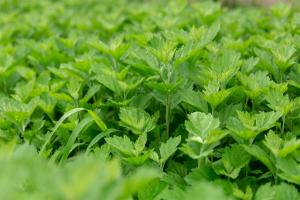Is My Tap Water Killing My Plants?
Many people assume that tap water is perfectly safe for their plants, but in reality, it can contain chemicals and minerals that can be harmful to your indoor and outdoor plants. Some of these contaminants can build up in the soil over time, leading to stunted growth, yellowing leaves, and even plant death.
What's in My Tap Water?
Tap water can contain a variety of chemical additives, including chlorine and fluoride, which are added during the treatment process to kill harmful bacteria and promote dental health, respectively. While these additives are safe for human consumption, they can be harmful to plants when they accumulate in the soil over time. Other common contaminants in tap water include mineral salts, such as magnesium and calcium, which can cause soil pH levels to become imbalanced and stunt plant growth.
How Tap Water Affects Your Plants
When you water your plants with tap water, some of the chemicals and minerals in the water can accumulate in the soil over time, affecting the pH balance and nutrient levels. This can lead to a number of problems, including plant stress, yellowing leaves, and even death. Certain plants, such as ferns and orchids, are particularly sensitive to tap water and require distilled or purified water to thrive.
How to Test Your Tap Water
If you're concerned about the quality of your tap water and how it may be affecting your plants, there are a few simple tests you can perform. One easy way to test the pH level of your tap water is to use a testing kit, which can be found at most home improvement or gardening stores. You can also perform a simple taste test to identify any unusual flavors or odors in your water, which could be indicative of high mineral or chemical content.
How to Protect Your Plants from Tap Water
There are several steps you can take to protect your plants from the harmful effects of tap water. One option is to use a water filtration system, which can remove impurities and chemicals from your tap water before it reaches your plants. Another option is to let your tap water sit out overnight before watering your plants, which allows some of the chemicals and minerals to dissipate. You can also use rainwater or distilled water for your plants, which are free of the chemicals and minerals found in tap water.
The Bottom Line
While tap water is safe for human consumption, it can be harmful to your plants when used over time. To ensure your plants thrive, it's important to test and monitor the quality of your tap water, and take steps to remove any harmful chemicals or minerals before watering. By taking these simple precautions, you can help ensure your plants stay healthy and vibrant for years to come.

 how many times do yo...
how many times do yo... how many planted tre...
how many planted tre... how many pine trees ...
how many pine trees ... how many pecan trees...
how many pecan trees... how many plants comp...
how many plants comp... how many plants can ...
how many plants can ... how many plants and ...
how many plants and ... how many pepper plan...
how many pepper plan...































